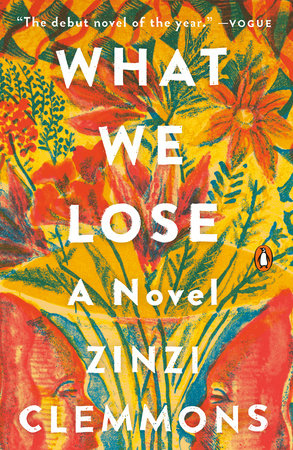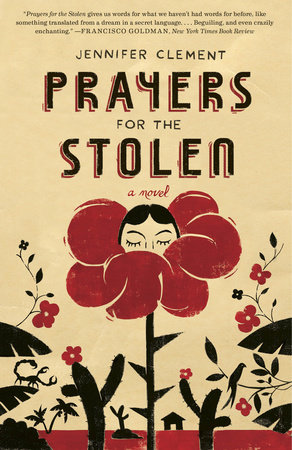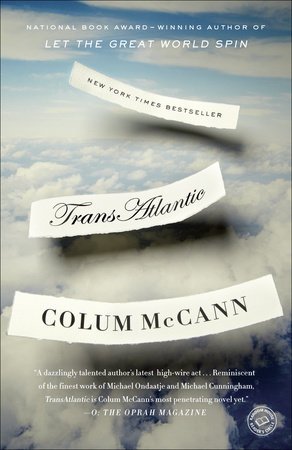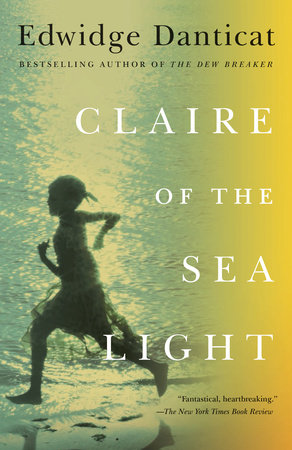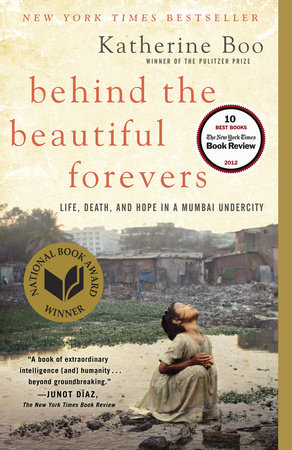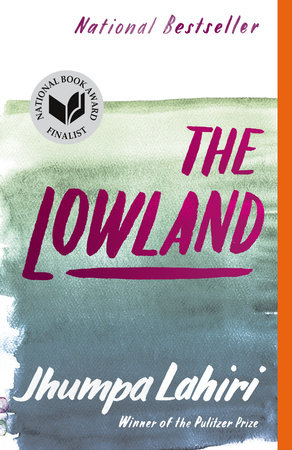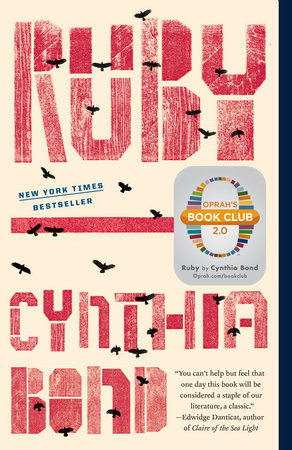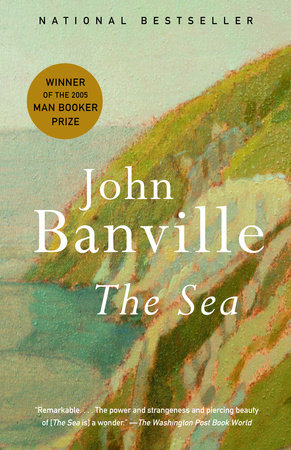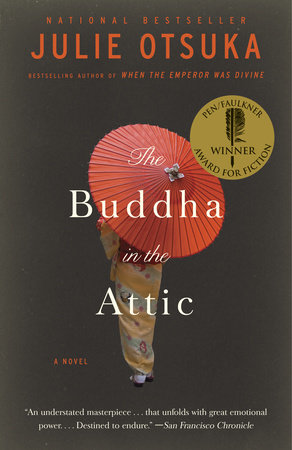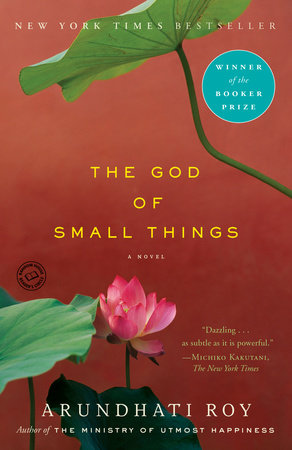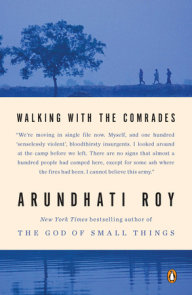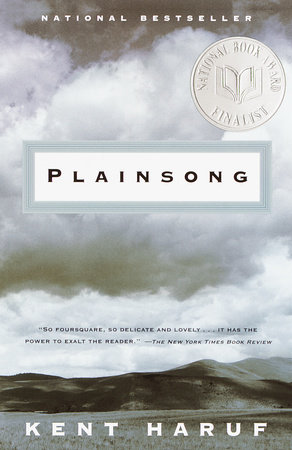Author Q&A
A CONVERSATION WITH ARUNDHATI ROY
Random House Reader’s Circle: When it was first published more than ten years ago, The God of Small Things won the Booker Prize and became an international bestseller. What was it like to have your debut novel generate that level of response? In what ways has your life changed since the novel’s publication?
Arundhati Roy: Fortunately it all happened so fast that I could barely keep up with it. I had spent more than four years writing The God of Small Things–holed up with it. At the time, the characters in the book were more real to me than the ‘real world’ was. So when all the business with prizes and best-seller lists was going on, all of us, Estha, Rahel, Velutha, Chacko Ammu, Baby Kochamma and Comrade Pillai looked out at what was happening with a degree of curiosity, but as though it had very little to do with us. It was like having ring-side seats for a fabulous circus.
But afterwards things changed dramatically. Just a year after the book came out, a right-wing Hindu-chauvinist government came to power in India. Within months it conducted a series of nuclear tests. They were greeted with glee in the mainstream media and a paroxysm of shrill nationalist posturing by an emerging middle-class. The air turned very ugly. At the time I was being celebrated for having made ‘India’ (whatever that means) proud. It was an odd place to be in, because I wasn’t feeling at all proud of India or what was going on here. I saw a terrible darkness ahead. (As it turns out I was not wrong about that.). Since the spotlight was on me at the time, I knew that keeping quiet was as political an act as speaking out.
I wrote an essay condemning the nuclear tests called The End of Imagination. That was more or less the end of Mainstream romance with me. It was also the beginning of an incredible journey into other worlds, worlds of incredible courage and grace and complexity, far more exciting than anything I had ever known before. Far more exciting than prizes and best-seller lists…
RHRC: You’ve published several works of nonfiction over the past several years. What can you tell us about those books? Do you plan to write another novel?
AR: After writing The End of Imagination, I traveled in the Narmada Valley in Central India where a series of big dams are being built on the Narmada. A spectacular resistance movement had grown along the banks of that beautiful river. It had forced the World Bank that was funding one of the mega dams to pull out of the project and had managed to persuade the Supreme Court of India to stay the construction of the dam. But suddenly, for no good reason the block was lifted and the construction began again. Hundreds of thousands of people, many of them Tribal communities, faced devastation. I began to read up on dams and was shocked by what I learned. Shocked that big dams in India had displaced more than 33 million people. Shocked at the ecological devastation they caused and the outright lies that had been spread about their benefits. That was the subject of my second essay, The Greater Common Good. One thing lead to another–dams began to be privatized–so I began to write about the privatization of power and water that linked up to Enron, to global finance, to corporatization. Then September 11th happened, the wars in Iraq and Afghanistan–it all began to connect up. It grew into ten years of intense political engagement.
Another novel? Yes. I hope so. I’m writing now.
RHRC: You’ve also become a prominent voice for international activism. What are some of the efforts and causes you support?
AR: I don’t see the things I write about as ‘causes’. ‘Causes’ smacks of charity and taking up ‘causes’ would make me a social worker, which I’m not.
RHRC: Did you draw on any of your own experiences for the characters, the setting, and the storyline in The God of Small Things?
AR: Yes, a great deal. I grew up in Ayemenem. My grandmother ran a pickle factory. But it’s hard to say where experience ends and imagination begins. The story is by no means a true story. But the feelings in it are.
RHRC: The God of Small Things is a very visual book. Did your experience in writing for film influence the vividness of your prose?
AR: It’s odd, but writing for film is not a very vivid business, not always. If The God of Small Things was a script I might write Scene 1 Ext. Day. The River. Whereas in the book I could spend pages describing the river, how the light was reflected in it, what the fish were thinking. I think the most visual part of the book are people’s feelings. I think I set out to write a stubbornly visual but unfilmable–or let’s say difficult-to-film book.
RHRC: Likewise, did your training as an architect factor into your writing or the storyline, such as with the detailed descriptions of the Ipe family residence, Velutha’s home, and the History House? How important is a sense of place in the story?
AR: I don’t think you necessarily need to study architecture to describe building in detail. I may be wrong, but I think my training as an architect kicked in more when I was structuring the books– structuring the narrative.
RHRC: At a movie theater, Ammu, the twins, and Baby Kochamma watch The Sound of Music. Does that film hold any personal meaning for you?
AR: The village I grew up in had no cinema hall. The nearest hall was in Kottayam town where we’d see Malayalam pictures which were all quite gruesome. The women were always raped, there would be awful violent bloody fights and everybody was miserable most of the time. The Sound of Music would come to Cochin and we’d go and see it. It was one of the few English films that came. We’d make this two hour car journey just to go and see it. I think I must have seen it about seven times. I didn’t like it very much (as must be obvious), it worried me greatly, but it was an institution, a thing we did, like going to church or something.
RHRC: What can you tell us about the novel’s narrative structure? Did you always intend to unfold the story by interweaving scenes from the past and the present, or did that come about after you began writing the book?
AR: It was the most challenging part of writing the book. It begins at the end and ends in the middle. It took me a very long time to understand what I was doing …I could sense a rhythm and I trusted it. But it was only when I had written a fair amount that I saw the structure clearly–that one strand of the story takes place over a single day and the others weave across years. If it had been a straight, linear narrative it would have meant something altogether different. Each ordinary moment becomes more heightened, more poignant because it is viewed through the complex lens of both past and future.
RHRC: The novel’s concluding scene led to charges of obscenity in India. What was the outcome of that controversy?
AR: Yes, I was charged with ‘corrupting public morality,’ which is a criminal offense. The case dragged on for years. After I won the Booker the judge in the Cochin High Court was worried about saying anything at all. Perhaps he didn’t want to anger the Marxist government which had taken great offense to the book, but he didn’t want to give a judgement on a book that had become so high profile either. I’d be sitting in court and the lawyers would begin to argue and he’d say "every time this case comes before me I get chest pains." And he’d just postpone it. This went on for years. But finally a new judge came and just dismissed it. Last year. So it’s over now.
RHRC: A decade after its publication, The God of Small Things is still widely read. What is it about the story that you think has resonated so strongly with readers?
AR: It’s a mystery. I like it that way. I have no thesis to offer.
RHRC: Did you find that readers in India and America reacted differently to the book? How about in other countries?
AR: Well…it’s hard to say. Because of all that has happened both before and after the book–certainly people in India react to me in complicated ways. Before the book came out there was such a media blitz here–mostly talking about money and advances–it made a lot of people feel extremely hostile towards me. They were right to be…I became a little hostile to myself those days. Then, after the novel, all the political writing…it made many middle class people in India, the heart of the book-reading public, uncomfortable, angry, sometimes furious with me. Because the way I see the world does not allow people to let themselves off the hook, it leaves little space for pleading innocence. And it’s uncomfortable to face the fact that all of us are complicit in what’s going on– victims as well as perpetrators… Estha and Rahel, though they were only seven years old knew, and were honest enough to admit that they were in some way complicit in the violence that was unleashed on Velutha. Adults find that hard to do…
But among the people who have enjoyed reading the book, I find they don’t react to it "country-wise" if you know what I mean…I met a woman in Estonia who said "But it’s about my childhood– how did you know about it?" It has been my greatest most intimate joy to watch the myriad, infinite ways in which people can love a book, a story, a character a and hold it to their hearts. It makes me feel blessed.



